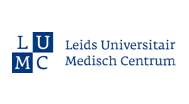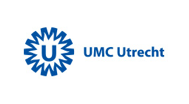Significant improvements in working conditions for umc employees
The Netherlands Federation of University Medical Centres (NFU) and the unions reached an agreement on Thursday evening, 15 February 2024, concerning the content of a new cao for the employees of all umcs. Next, the involved parties must officially approve this result of the negotiation. Getting their members’ agreement can take several weeks. The agreement applies for 2024 and 2025 and covers a total package of improvements.
The NFU is delighted that the employees now have clarity. NFU negotiators Karen Kruijthof and Gabriël Zwart explained, ‘We listened closely throughout the entire process to the signals that our employees gave us and to what the various unions were saying. This package fulfils the wishes of a range of employee groups. It was also important to arrive at an agreement that is financially responsible for the umcs. That turned into a complex puzzle that took quite some time to resolve.’
The main points of the agreed package:
(the definitive texts are given in the cao)
- The cao applies for the period from 1 January 2024 to 31 December 2025.
- Wages will be increased across the board by 7%; 4% on 1 May 2024 and
3% on 1 July 2025, up to the maximum of scale 11. - A compensation of €80 gross per month will be paid to groups of employees who are required to wear work clothing and have to change into it in the hospital.
- A compensation will be paid for commuting. For a single journey longer than 7 km, the cost of public transport will be reimbursed in full (100%). Employees who use their own car will be reimbursed 18 cents per km, up to a maximum of 40 km (single journey).
(This takes effect on 1 October 2024, as it will take time to arrange this properly. Existing arrangements involving a fiscal trade-off will continue. The parking policy is arranged individually by each umc.) - The number of non-statutory vacation hours will be increased in 2024 to 28 hours, and to 32 hours in 2025.
- Employees will be enabled to save up leave until they need it sometime in their career. This ‘leave balance pot’ can be filled with, for example, overtime, non-statutory vacation days that weren’t taken or by buying hours of leave.*
- To keep older employees active and healthy, all umcs are offering a generational policy: working 80% while retaining 90% of the salary and 100% pension accrual.
- Each umc is obliged to prepare a policy to address transgressive behaviour.
- Compensation for standby shifts will increase to €5 gross per hour on weekdays and €10 on Saturday, Sunday and holidays. For on-call shifts, the compensation will be €6.25 and €12.50, respectively.
- There will be a compensation for off-site availability shifts, including for employees not involved in caregiving. The compensation is the same as that for the standby shifts.
- When employees take maternity or parental leave, the umcs will supplement the Netherlands Employees Insurance Agency (UWV) benefit of 70% up to 100% of the salary (up to the legal maximum daily wage).
- For those who can work from home, the work from home allowance will be adjusted to the maximum amount that remains under the tax-free limit. In 2024 that is €2.35 per day.
- The umcs will increase the compensation for residents by 20% to €120 gross per month.
- When scheduling shifts and rosters, the umc’s employees will take precedence over external hired workers.
- In consultation with the representative organisations of medical interns, the umcs will examine how they can align the current working hours for medical interns with the set hours.
- The temporary work contracts of researchers in training and scientists can be extended by including maternity leave and partially parental leave.
- If a medical specialist has worked a standby or on-call night shift, then he or she does not have to care for patients the next day.
- In addition, the unions and the umcs have agreed that revision of the working conditions for academic medical specialists can now start. In line with societal developments, the age threshold for the arrangements concerning working shifts will move in stages from 60 to 62 years.
* This does not apply to medical specialists. Another arrangement is being considered for them.








